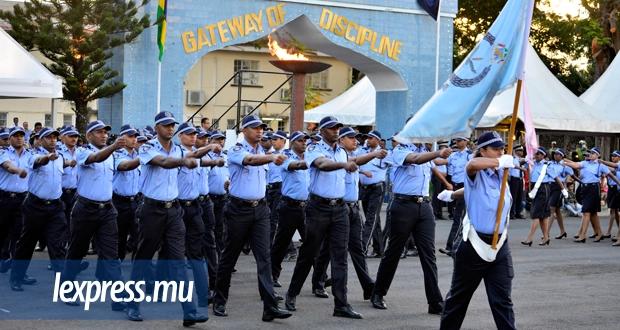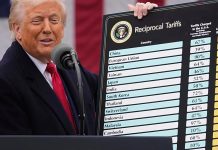Africa-Press – Mauritius. Since its establishment in 1767, the police have gone through many social and political turbulences and, as our law enforcement agency, they have stood the test of time.
From Police Commissioner Bernard McCaffery (the last days of colonial rule) to the current one Mario Nobin, the police have metamorphosed into more complexities and each one has his own style of handling delicate or explosive situations with care and diligence.
They have steered the country out, taking into account the various sensibilities which abound in Mauritian society. One thing is for sure, Mauritius, though a tiny State, is the most difficult country to govern, once confided a Prime Minister.
The country is really a powder keg and the least spark can unleash a conflagration. Had it not been for our police force to handle these delicate, nay explosive situations, our country would have dived into lawlessness and anarchy.
The work of the police is not easy as our society has evolved on a more dramatic change on the path of modernity and materialism, with technological innovations within our reach. Very often, a policeman or a policewoman has to tackle difficult situations and take a quick decision on the spot to maintain law and order.
He has, in his mission, to deal with drunken fellows, screaming prostitutes, thugs armed with offensive weapons, violent burglars, sexual predators, political mobs and insolent upper-class rowdies.
How many policemen, in the course of their duty, have been spat upon, jeered at? Their human and official dignity is insulted by the social misfits. Nowadays, paradoxically, many citizens know only their rights but not their duties. They never put their feet into the shoes of the policeman.
Our police have surfed on many tsunamic situations: these are the pre-Independence high voltage campaign of the sixties resulting in ethnic compartmentalisations, The communal riots of 1968 (the intervention of King’s Shropshire Light Infantry from Singapore) and 1990, the assassination of Azor Adelaïde, hooliganism triggered in football matches between communal teams, the social explosion across the country in the wake of the arrest of late sir Gaëtan Duval, the mutiny in Beau-Bassin prison, the wildcat strikes of the seventies, the demonstration of Relief Workers in the streets of Port-Louis, the burning of L’Amicale after a football match at Anjalay Stadium and the chronic clashes of rival political parties’ agents on the eve of elections, not to mention arrests of drug traffickers.
The police have always been on the frontline for the upkeep of the country. One thing for sure, thanks to our police, the country has not verged on coups like our African neighbours, who used to govern at the barrel of a gun and who changed governments like shirts.
Or still we do not have an army to control everything and set a martial law as in Asian States. We are blessed to live on an island where there is peaceful coexistence and harmony.
Meanwhile, in the same vein, the country is craving for the long overdue Police and Criminal Evidence Bill. The policeman does not work in salubrious conditions.
He becomes an overworked and unpopular functionary of the State. At the end of the day, he does not expect any reward. The citizens can soundly sleep while they work to maintain law and order in the country.
They deserve our admiration and trust but not all. Black sheep in their fold have tarnished their reputation. The recent shocking revelations of certain police officers across our media or in the Commission of Enquiry against Drug Trafficking send a cold shiver down our spine.
It is unimaginable. How have we reached such a state of rottenness in the marrow? There is also police abuse much decried by the population. Many prisoners were found dead suspiciously in their prison cells.
They add more doubt and suspicion in the mind of the public. Miscarriage of justice due to enquiries badly tied up by police throw much discredit to them.
Then came the threat statement of the Vice-Prime Minister of our Republic against the leader of the opposition during a religious celebration, which adds much confusion to our minds.
Is it not an arrestable offence? The culprit should have been arrested on the spot without any dillydally. Where is the Rule of Law? So long as politicians believe that they can make the police dance according to their tunes, this can have a boomerang effect in the administration of justice.
Politicians must stop putting their nose in the decisions of the police. It is only then that the police will deliver the goods most efficiently. For heaven’s sake, politicians, no matter what colour they are, must stop this bad undemocratic manner of dictating to the police what to do.
It should not be instrumental for political vendetta. The regime which allows, or indeed encourages, its policemen to trespass the limits of law does so at the cost of discrediting the very law the latter are struggling to defend and uphold.
Every regime gets the police it deserves. The crux of recent difficulties in connection to the relation to the police lies in the ambiguity of our attitude to the police.
There is the school of thought that they are the trusted preservers of law and order and they deserve our respect and admiration throughout the communities which they protect.
But there is a less accommodating school of thought which looks upon the police as discriminatory in their exercise of might and whose every action needs to be checked and controlled at every turn. At the end of the day, “Quis custodiet ipsos custodes?” Who watches the watchdogs?
For More News And Analysis About Mauritius Follow Africa-Press







